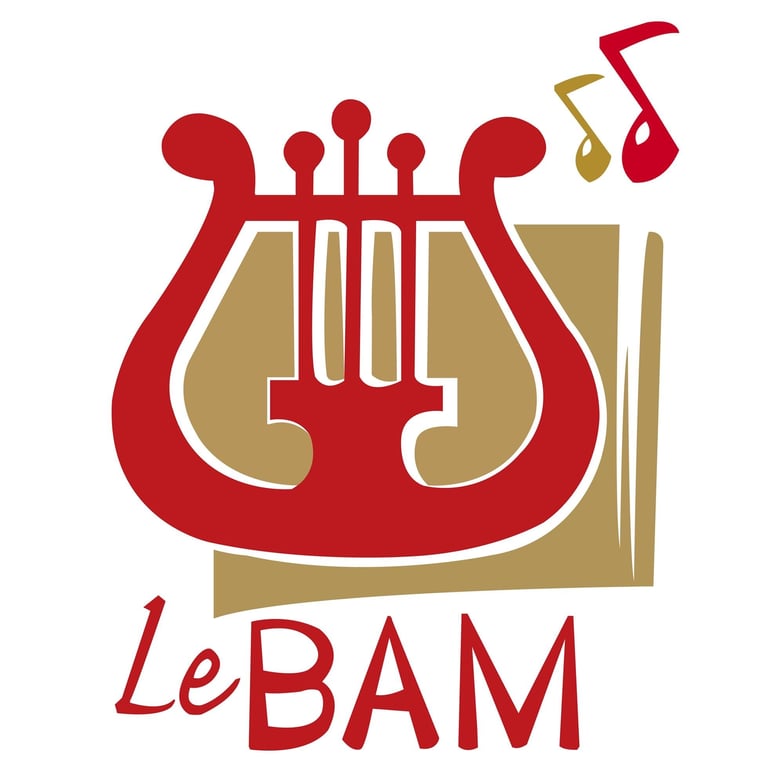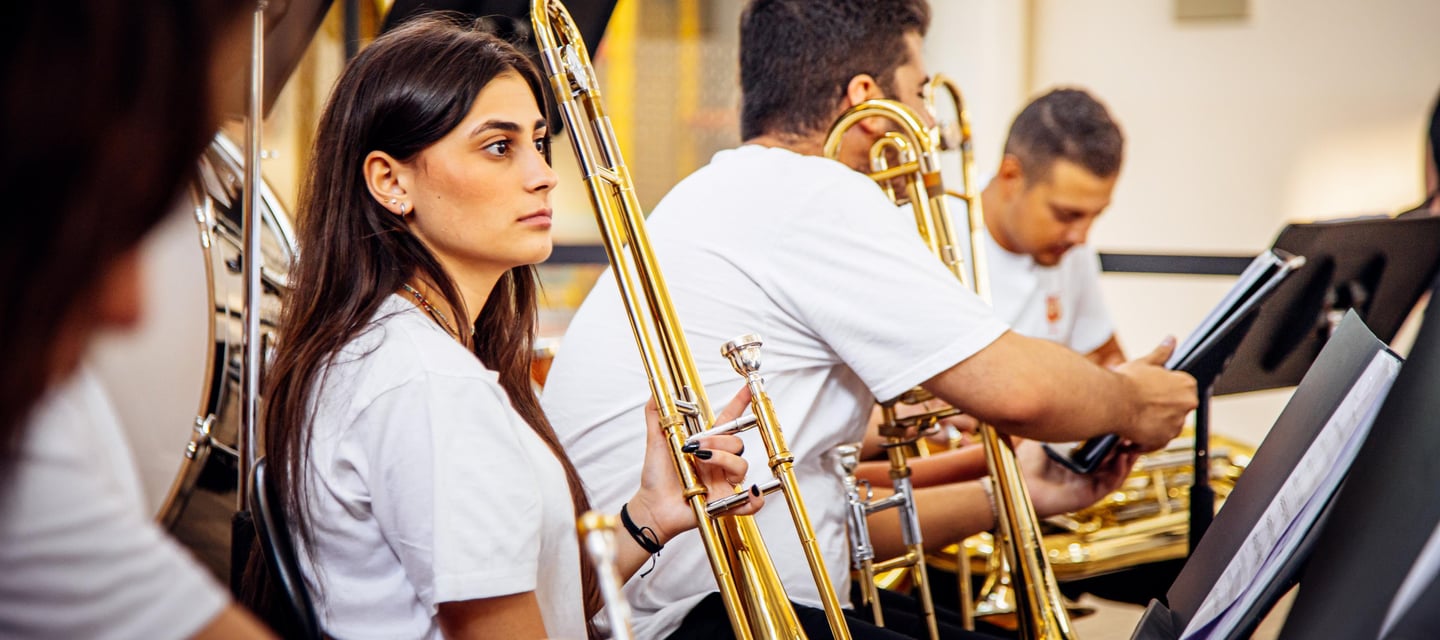The Lebanese Band Association for the Promotion of Music - LeBAM
The “Lebanese Band Association for the promotion of Music (“LeBAM”)” is a non-profit, non-political , non-religious based NGO, established in March 2008 (Incorporation Receipt “Ilm wa Khabar” No. 283 of March 10, 2008).
LeBAM seeks to promote the development and dissemination of music in Lebanon as a tool for educational and social development, through the free teaching of wind and percussion instruments to 12 to 18 years old youth and organizing them in community based harmonic bands and other ensembles particularly in rural and poor areas, using freely donated instruments.
The primary activities of LeBAM will be to: (i) teach music for free and make wind and percussion instruments available to young students free of charge, and, (ii) perform public concerts during the year (outdoors and indoors) with high polyphonic quality.
Other activities of LeBAM will use the music performed by the youth harmonic bands to develop the musical culture in communities in general and parents in particular; music will also be used to address the children’s right to education in Lebanon, through advocacy (involving the children themselves) for the development of the long-neglected Lebanese public education system, particularly the mandatory music education program.


Our mission
Create and manage a quality community-based, nation-wide band/orchestra music program, to promote culture, diversity, development, and citizenship. Ultimately, make the free teaching of quality music mandatory in all schools.
Our vision
Positive Transformation (Personal and Social) Through Quality Band Music.


Music can be wrongly perceived as a luxury or as a simple tool to accompany food, marriages or even funerals; it is certainly not (only) so. The project to promote music through the establishment of harmonic bands in Lebanon (particularly within rural and poor communities), is expected to serve a multiplicity of important goals, of which:
Provide a peaceful activity for children, youth and mature citizens, an antidote to violence and idleness;
Develop educational ability, as music lessons have been shown to improve children’s performance in school and to boost their spatial IQ, which is crucial for higher brain functions such as complex mathematics.
Provide an opportunity to develop the performance of music as a profession, or as an adjunct source of income (both collectively through the bands, and individually, by each musician);
Provide a tool for the democratization of music, by teaching young students in mostly rural and poor areas and their communities, to appreciate and perform all kinds of music (e.g. Lebanese, jazz, classical), thus becoming a vector of cultural openness;
Develop the culture of team-work, as performing in an orchestra teaches discipline and cooperation;
Develop the sense of community service, as the bands will be called to perform in local public concerts and participate in community events, free of charge;
Develop the culture of individuality, diversity and democracy, as music is a fundamentally important cultural activity that develops self esteem, a critical sense as well as the respect for diversity, deriving from the individual appreciation, or not, of various types of music; it is ultimately a powerful tool for the development of democracy and an antidote to extremism and fundamentalism.
LeBAM
Positive Transformation Through Quality Orchestra Music
info@lebam.org
+ 961 78-77-65-77
All rights reserved © 2025 | LeBAM
